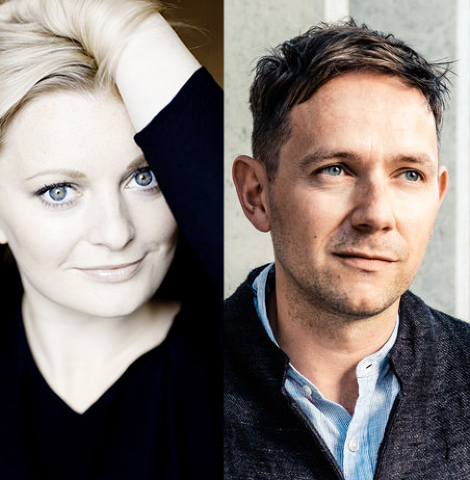The English Concert at Carnegie Hall
Watching a Female Leader Triumph
By: Susan Hall - Dec 17, 2023
The English Concert led by Harry Bickett performs an annual Baroque opera, semi-staged at Carnegie Hall. These performances are highly anticipated, for good reason.
In these annual treats, Bickett conducts from the harpsichord. It’s fun to watch him keep the beat, give the singers space and bring forth a Baroque musical sound from his ‘period’ orchestra. The lute stands out, seated near the conductor and showing off its big bold soundboard and long neck.
Among the many memorable moments in this Georg Frederick Handel opera, Rodelinda, the duet at the end of Act II stands out. Lucy Crowe’s and Iestyn Davies' performance left the audience at first breathless in admiration. Then their rapturous applause enveloped the singers.
Lucy Crowe is a go-to Handel soprano. When the Metropolitan Opera cast Renee Fleming in the role, we heard lines that were over-ornamented, messing up the melodies. Crowe doesn't have to do this and chooses Joan Sutherland’s path of purity. This also gives the acting artist a regal feel. Rodelinda is a queen for our times, brave and fiercely withstanding the evil forces around her.
Carnegie is not far from Broadway. Almost a decade ago, theater fans competed for tickets to hear one of the stars of Carnegie’s production, Iestyn Davies. Since opera manager George Steel presciently cast Davies in Handel’s Partenope, audiences look for the Davies name on any roster. Handel’s Rodelinda is no exception.
Yet this is an odd work. There are two countertenor roles. Smartly, Aryeh Nussbaum Cohen was cast as Unulfo. His voice is rougher around the edges than Davies, yet still satisfies.
Brief gestures that add drama to a series of arias going on for four hours are welcome. The opera’s dramatic problem, moving from dark tragedy in the first two acts to a comic resolution is addressed by the singers and also by these gestures. Just as each beautiful note wafts across the Stern stage and out into the audience at Carnegie, these gestures, even when they are a wink (to be sure exaggerated), or the evil eye, carry out to the audience.
This of course does not solve the problem of four hours. Everyone waits eagerly for the duet between Rodelinda and her presumed dead husband Bertarido at the end of Act II. The opera ends with a sestet. Yet otherwise we have solo singer after solo singer. The added gestures help.
Yet we are listening for four hours nonstop. One feels, after the Iestyn Davies Broadway success, where he became the cast member ticket buyers want to hear (with Mark Rylance starring!) perhaps cutting the repeats and making the length more palatable to eager but uninformed new audiences would be a good idea. Here is music that can survive changing times. Why not help it along?
If anyone can help make changes happen, it is Carnegie. They are the adaptable, high-standard venue in New York.
For those of us who simply love this accessible music, it was a perfect afternoon. Perfectly beautiful.
Watch for the English Concert’s annual performances at Carnegie. Like so much of the Hall’s programming, it can delight audiences of all ages.

